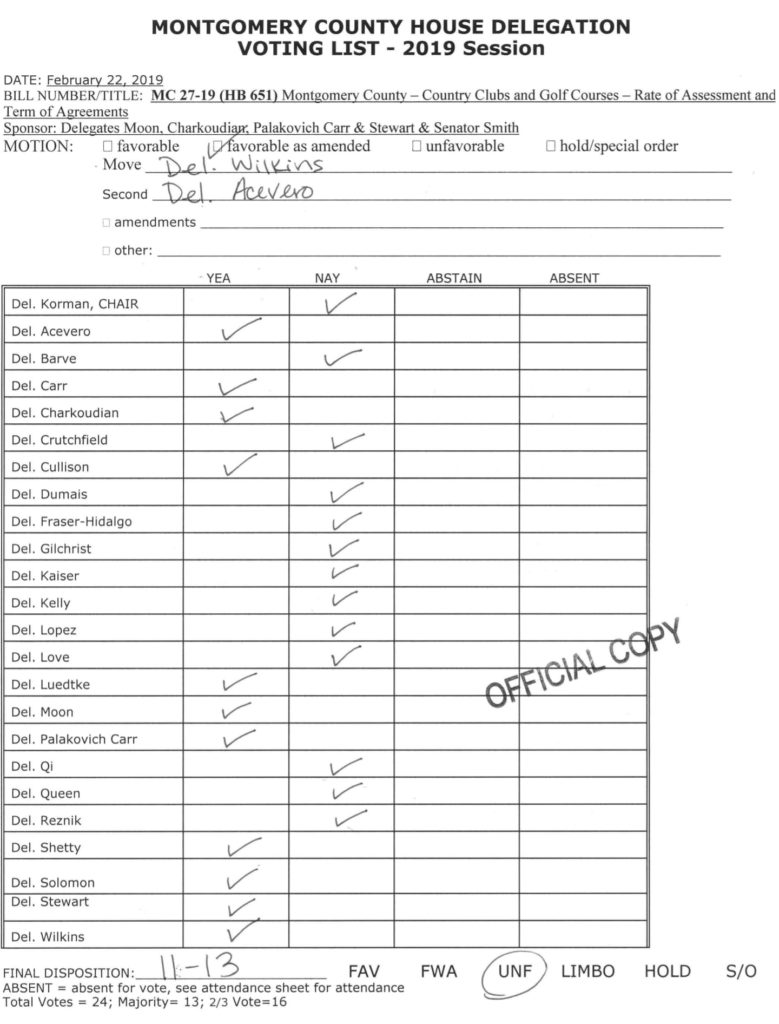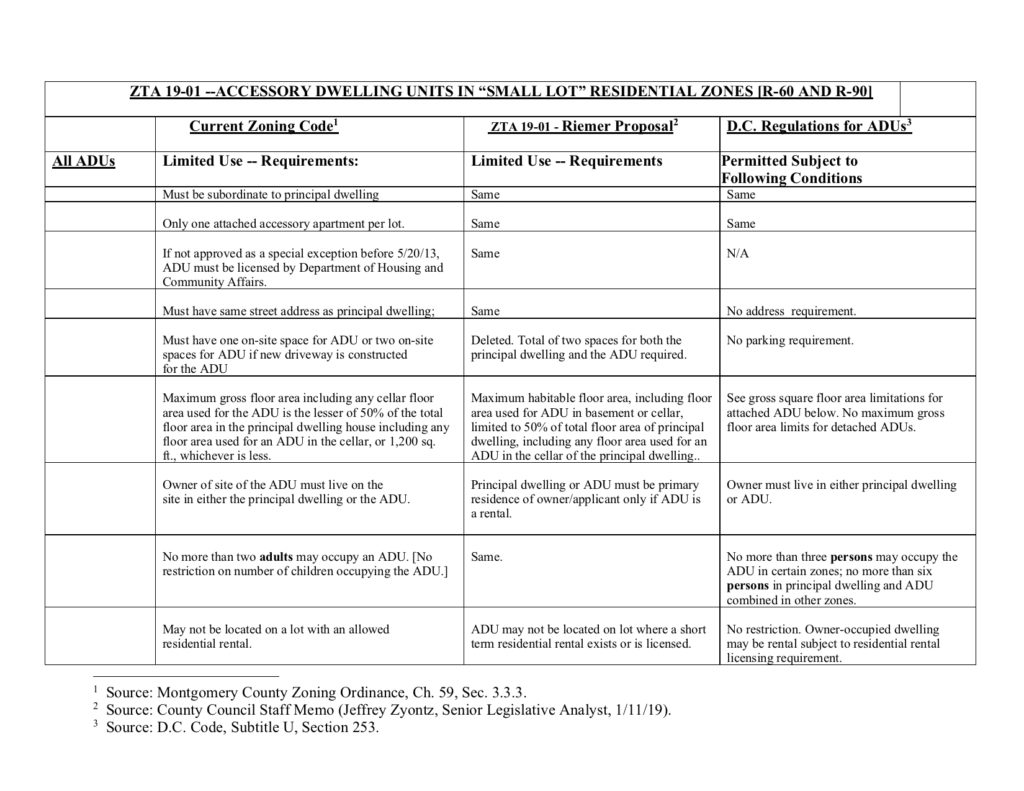Andy Leon Harney is the Village Manager of Chevy Chase Section 3. At the bottom of the post, you can find her testimony expressing concerns regarding Councilmember Hans Riemer’s efforts to loosen substantially the requirements for accessory dwelling units (ADUs).
Harney points out that the spread of impermeable surface due to building can cause storm water drainage problems. This may sound like some minor issue to some on the theory that it all just ends up in the drains but it’s not. When there is less land to absorb water, it has to go somewhere and that place can be your neighbor’s basement.
Unfortunately, we had experience with this problem in the Town of Chevy Chase due to people building larger homes and the county laws are very lax and don’t address the problem. We now require that people who add over a certain amount of square footage of impermeable surface must also build a water retention system to keep the water on the property until gradually absorbed into the ground.
Perhaps the County should include a similar requirement into the ADU law? After all, if most units will be small, then it won’t negatively impact building ADUs. To the extent it does, it prevents people from literally dumping a problem on their neighbors. (The Town also passed ordinances that I supported requiring greater setbacks, especially in the rear, and limiting home size more than the County.)
Proponents of the ADU changes assure us that “most” of the new homes will be small and thus not be a problem. But then why does the new legislation do away with the current limits on ADU size in favor of allowing the ADU to be 50% of the size of the house?
Harney also agrees with the county executive that the ADU proposal will not result in affordable housing. Again, if you want affordable, why allow bigger than now? Rents will be driven by the open market in any case and, as Harney points out, someone who just invested in building one will want to get their money back quickly.
Finally, and perhaps most importantly, Harney contends that the ADU plan is the thin edge of the wedge in an attack on existing single-family home neighborhoods. While I generally don’t rush to slippery slope arguments, there is some real justification in this case.
Beyond my arguments that people will circumvent the law legally or just ignore it due to lack of enforcement, this is a revision to expand ADUs when the previous legislation has just barely been implemented. Councilmember Riemer has long been a proponent of allowing higher density.
Many key proponents of this plan would like it just fine if it led to permitting multi-unit developments or apartment buildings in existing neighborhoods. (See Just Up the Pike or Greater Greater Washington for examples.) Residents are not in accord with this vision.



